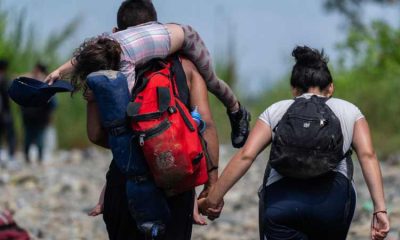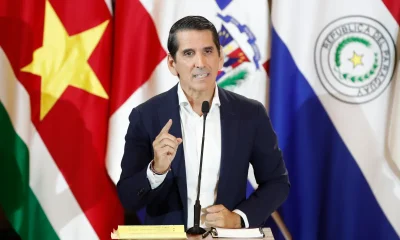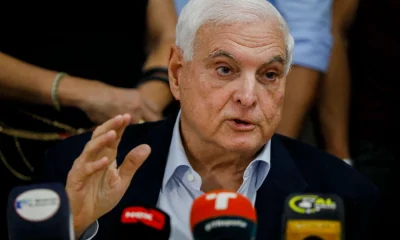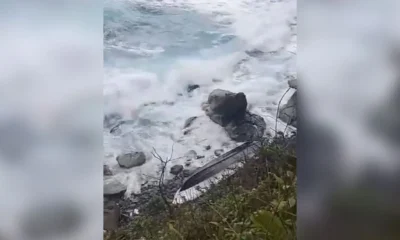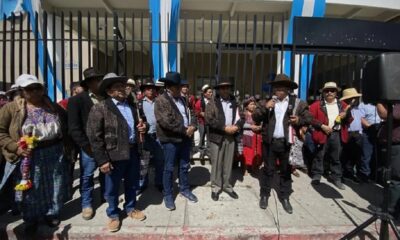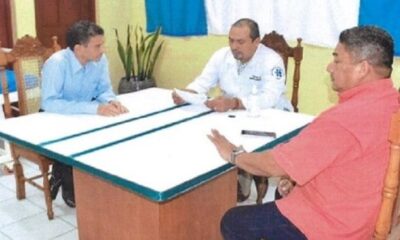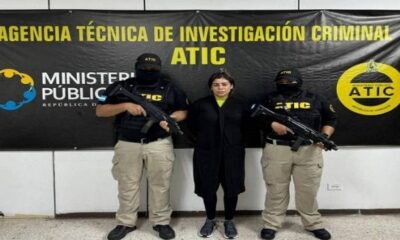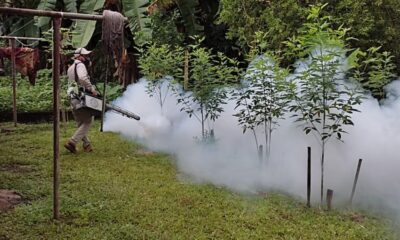Central America
Central America’s biggest mine faces closure over tax spat
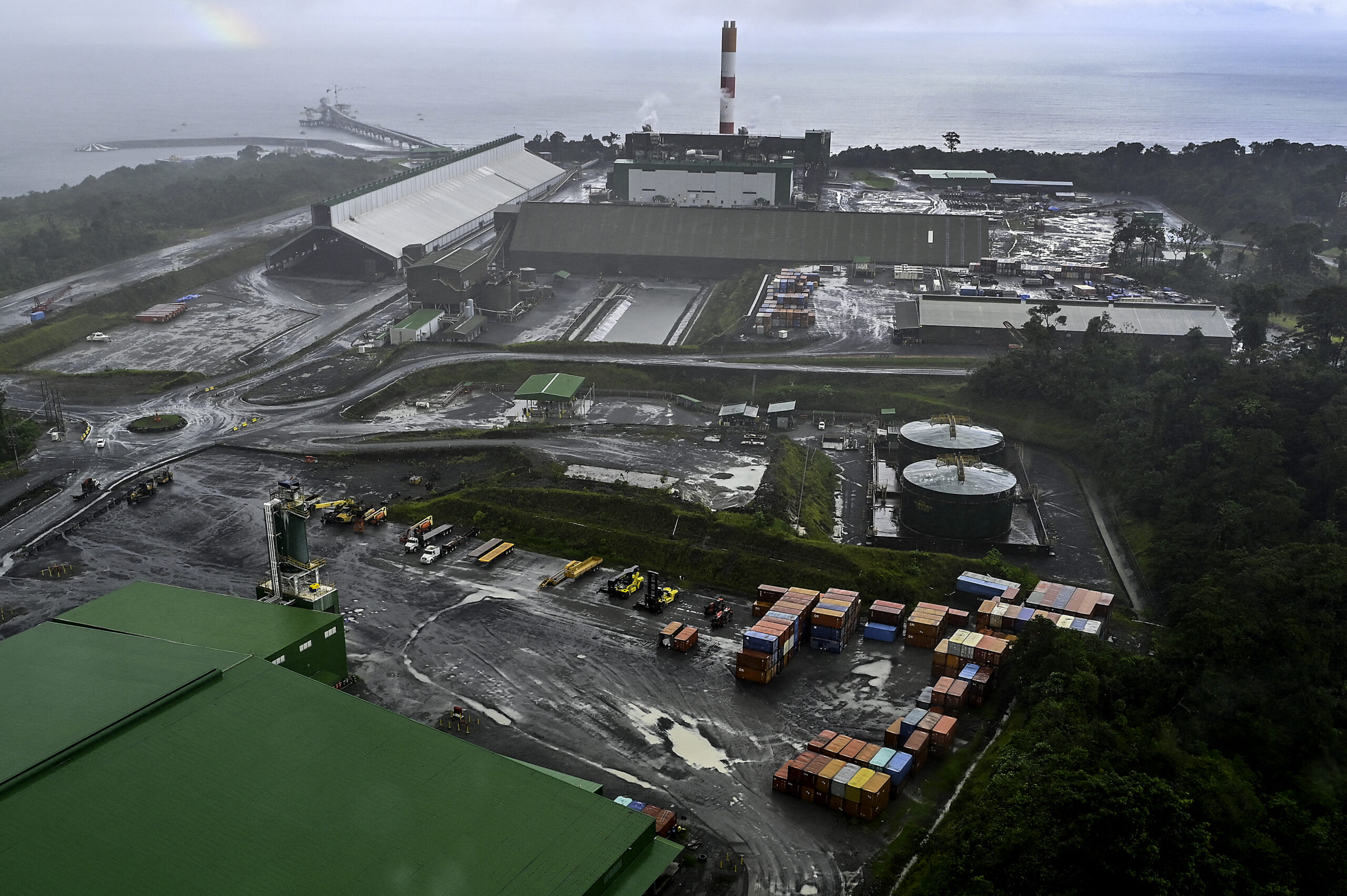
| By AFP | Francisco Jara |
Rising up through the lush vegetation of Panama’s Caribbean coast, a 125-meter chimney serves as a beacon for helicopters approaching the largest mine in Central America, which faces closure next week over a contract dispute.
Gigantic 400-tonne trucks slowly wind around the stepped slopes of a massive gash in the earth one kilometer wide, the ochre and grey of the copper mine standing in stark contrast to the verdant jungle surrounding it.
The activity could grind to an expensive halt in a matter of days.
Canadian mining giant First Quantum Minerals has until next Wednesday to sign a new contract with the government, which is demanding the company multiply the taxes it pays by 10.
If the parties do not agree, the disagreement could halt the work of a mining project considered the largest private investment in Panama’s history, contributing four percent of the country’s GDP and 75 percent of export revenues.
“We have been given a deadline to sign the new contract by December 14, to accept the new terms,” First Quantum’s manager in Panama, Keith Green, who is Scottish, told AFP.
“We intend to reach an agreement, but negotiations are a bit deadlocked,” he added.
First Quantum, one of the largest copper miners in the world, began commercial copper production at the site in Donoso in 2019, through its subsidiary Minera Panama.
It has spent $10 billion on earthworks, construction buildings to house more than 7,000 employees, the purchase of heavy machinery, a power plant, a port for deep-draft merchant ships, access roads, and re-forestation plans.
‘Fair income’
President Laurentino Cortizo in January announced plans to toughen the conditions of the mining license, with a new contract that would oblige the mining company to pay “at least” $375 million to Panama annually — ten times what it is currently paying.
“Panama has the inalienable right to receive fair income from the extraction of its mineral resources, because the copper is Panamanian,” he said.
This mine is “the biggest in Central America,” producing 300,000 tons of copper concentrate per year, said Green.
The deposit, discovered in 1968, lies on the Caribbean coast, 240 kilometers by road from the capital Panama City.
The company, listed on the Toronto Stock Exchange, built the Punta Rincon International Port next to the mine to transport the copper by ship, due to a lack of roads connecting the Colon port, 40 kilometers (25 miles) away.
Despite the uncertainty over the mine’s future, activity has not slowed and the company has continued to invest in the site.
A new 200-tonne drilling rig — as tall as a three-story building — was inaugurated in a ceremony on Tuesday, causing heavy air traffic.
Helicopter pilot Oldemar Arauz explains that most officials visiting the mine prefer the one-hour air trip to the four-hour drive on a narrow road from the capital.
The drilling rig, made in the United States by the Swedish company Epiroc, cost $6 million, and was transported to the mine in 10 trucks.
“Latin America has 200 of these drills, 50 in Chile and now three in Panama,” said Epiroc’s Latin America manager Hans Traub.
The drill was assembled by Chilean engineer Alex Gonzalez, who previously worked in Chuquicamata, the world’s largest open pit copper mine, situated in the Atacama desert, which has been operating since 1915.
Central America does not have the same mining tradition seen further south. Mining is illegal in Costa Rica and El Salvador, and while there is much potential for growth in Panama, the industry’s future is now hanging in the balance.
Central America
Nicaragua Held Responsible for Harassment of Opposition Prosecutor and His Family
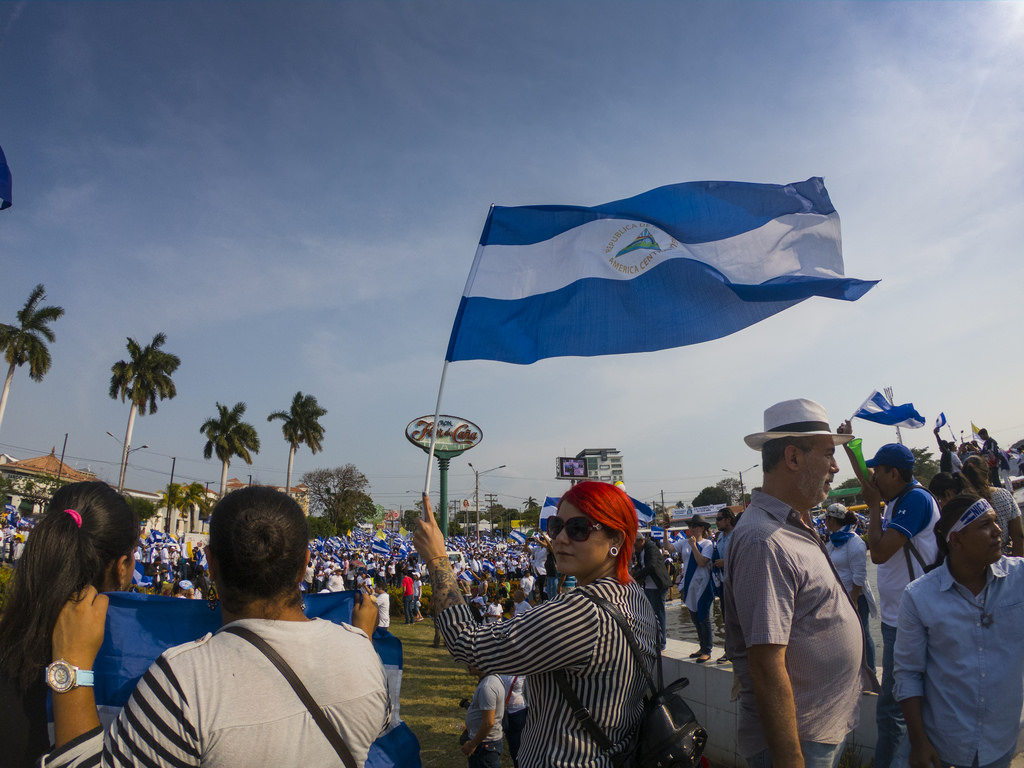
The Inter-American Court of Human Rights on Wednesday found Nicaragua responsible for threats, harassment, and attacks suffered by opposition election monitor Jaime Antonio Chavarría and his family after he reported irregularities during the July 27, 2008 municipal elections.
Chavarría was serving as an electoral verification prosecutor for the opposition Constitutional Liberal Party at a polling station in Managua on election day. He filed a formal objection with local authorities, complaining that the polling center had closed before the scheduled time while voters were still waiting to be verified.
According to the ruling, Chavarría and several relatives present at the site were subjected to insults and threats by a representative of the ruling Sandinista National Liberation Front (FSLN). As they were leaving the area, they were intercepted and attacked by a large group of individuals allegedly incited by local Sandinista leaders.
“The events were witnessed by police officers who refrained from intervening. Mr. Chavarría Morales and his relatives, who suffered various injuries, managed to escape in their vehicle, which the aggressors attempted to set on fire,” the court detailed.
Chavarría reported the incident to the National Police, but the case was ultimately shelved in May 2016. Acts of harassment and intimidation continued over time.
The court concluded that the State bore responsibility for the threats, harassment, and subsequent attacks following July 2008, citing the participation or acquiescence of state agents in some of the incidents, as well as the failure to adopt protection and investigative measures.
In its judgment, the court determined that Nicaragua violated Chavarría’s rights to personal integrity, freedom of thought and expression, political rights, equality before the law, and the right to defend human rights.
The ruling also established state responsibility for violations affecting the personal integrity, judicial guarantees, judicial protection, and family protection rights of Chavarría and for the harm caused to the life plans of his children: Cindy Alicia Chavarría Alonso, Jeffer Joaquín Chavarría Alonso, and Jaime Antonio Chavarría Alonso.
Central America
Guatemala’s Attorney General Fails in Bid for Top Court Seat Amid Corruption Allegations
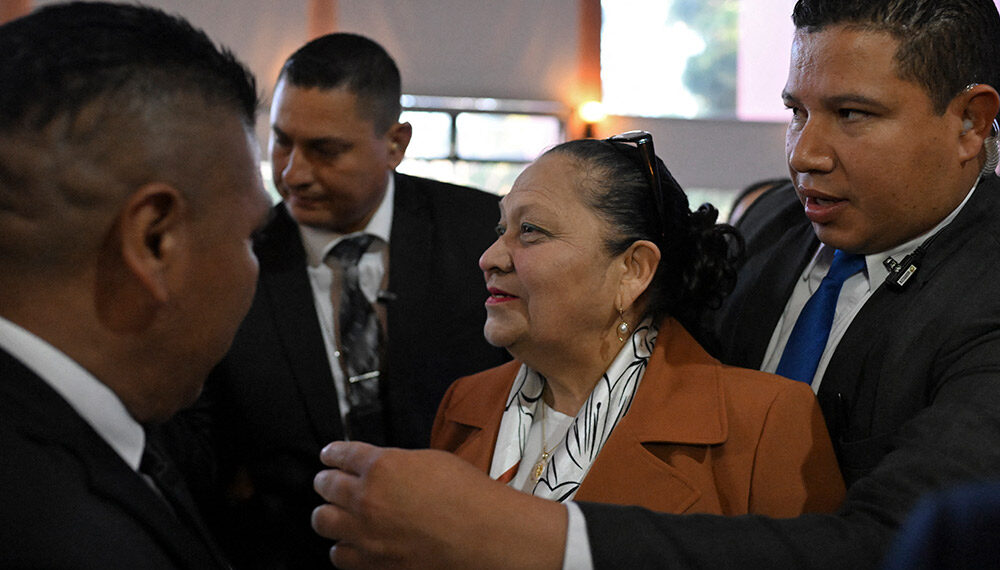
The Attorney General of Guatemala, Consuelo Porras, failed on Tuesday in her bid to join the country’s highest constitutional court, a position that would have granted her immunity from corruption allegations for which she has been sanctioned by the United States and the European Union.
Porras, whose term as attorney general ends in May, did not receive a single vote in the final round of voting to become a magistrate of the Corte de Constitucionalidad, whose rulings are final and cannot be appealed.
The Supreme Court reelected Dina Ochoa and Claudia Paniagua as its representatives to the Constitutional Court.
Ochoa is considered close to former presidents Jimmy Morales (2016–2020) and Alejandro Giammattei (2020–2024), both accused of corruption. Paniagua, like Porras, has been sanctioned by the United States.
Washington and the European Union have labeled Porras as “corrupt” and “undemocratic,” accusing her of attempting to block the inauguration of Social Democratic President Bernardo Arévalo two years ago.
In addition, the 72-year-old attorney general—who is seeking a third term—has been accused of forcing anti-corruption officials, journalists, and social leaders into exile. She denies the allegations and claims they are part of a political persecution campaign.
Porras’ chances of remaining in office, a position she has held since 2018, are considered slim, as President Arévalo is responsible for appointing the next attorney general.
Central America
Panama Canal Monitoring Trade as Middle East Conflict Disrupts Shipping
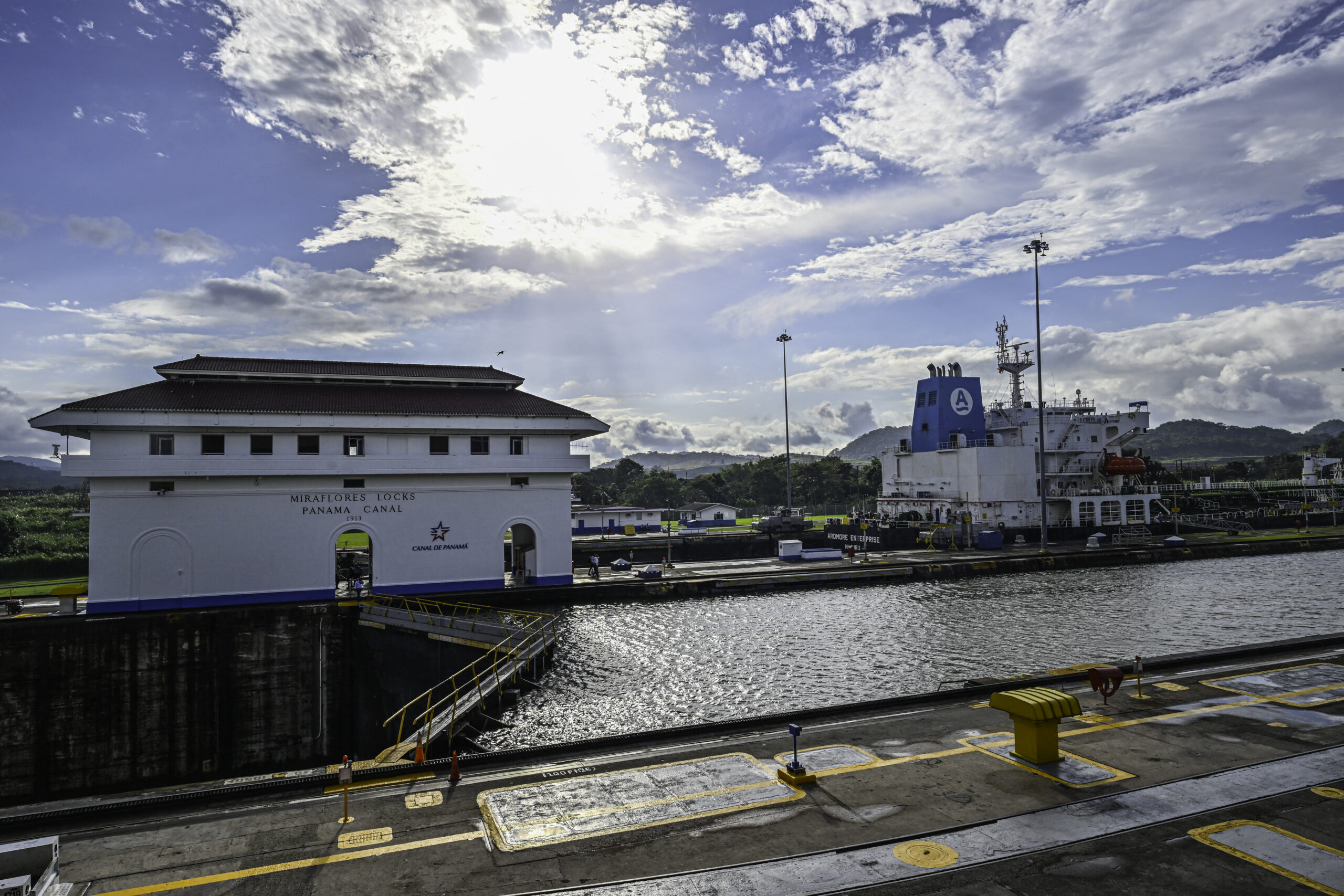
The Panama Canal Authority (ACP) said Monday it is closely monitoring global maritime trade developments following the conflict triggered by joint U.S. and Israeli strikes against Iran.
However, the ACP described it as “premature” to predict potential consequences for vessel traffic through the interoceanic waterway, which handles roughly 5% of global maritime trade.
“The Panama Canal continuously monitors the evolution of international maritime trade and the dynamics that may influence its flows,” the authority said in a statement. The canal’s main users are the United States and China, connecting primarily the U.S. East Coast with Asia, including South Korea and Japan.
The ACP emphasized that the canal “continues to operate safely, efficiently, and reliably,” providing uninterrupted service to the global maritime community.
Global Shipping Disruptions
The U.S.-Israeli military operation against Iran and Tehran’s retaliatory actions have disrupted global maritime traffic, particularly oil tanker routes.
Shipping giants Maersk and CMA CGM have suspended transits through the Strait of Hormuz as well as crossings via the Suez Canal, the key route linking the Mediterranean Sea and the Red Sea.
As a result, cargo vessels are now rerouting around Africa to reach Europe from the Middle East and Asia — a detour that adds several thousand kilometers and several days to voyages.
-

 International3 days ago
International3 days agoIran Reports 201 Dead, 747 Injured After U.S. and Israeli Strikes
-

 International2 days ago
International2 days agoBrazil’s Supreme Court Rejects Bolsonaro’s Bid for House Arrest
-

 International3 days ago
International3 days agoPope Leo XIV Urges End to ‘Spiral of Violence’ in Middle East
-

 International4 days ago
International4 days agoSecurity Council to Hold Emergency Meeting on Middle East Crisis
-

 Sin categoría4 days ago
Sin categoría4 days agoTrump: ‘We Think It’s True’ Amid Claims Iran’s Supreme Leader Was Killed
-

 International2 days ago
International2 days agoAnti-ICE Billboard Campaign Targets Immigration Spending in 31 U.S. Cities
-

 International2 days ago
International2 days agoTrump Warns of ‘Major Wave’ of Attacks as Iran Conflict Escalates
-

 International1 day ago
International1 day agoSpain’s Prime Minister to Address Nation Amid Trump’s Trade Threats
-

 International2 days ago
International2 days agoMexico Calls for Immediate Probe After National Dies in ICE Custody
-

 International2 days ago
International2 days agoBolivia Orders Three Investigations Into Deadly Military Plane Crash
-

 International1 day ago
International1 day agoNew York Announces First 2,000 Seats in Universal 2-K Program
-

 Central America2 days ago
Central America2 days agoPanama Canal Monitoring Trade as Middle East Conflict Disrupts Shipping
-

 Central America1 day ago
Central America1 day agoGuatemala’s Attorney General Fails in Bid for Top Court Seat Amid Corruption Allegations
-

 International1 day ago
International1 day agoWarner Bros. Developing First ‘Game of Thrones’ Movie With ‘Andor’ Writer
-

 International6 hours ago
International6 hours agoWhite House Says Spain Agrees to Cooperate with U.S. Military After Trump Threatens Trade Embargo
-

 International6 hours ago
International6 hours agoSpain Denies Any Agreement to Cooperate with U.S. Military in Iran Operations
-

 Central America6 hours ago
Central America6 hours agoNicaragua Held Responsible for Harassment of Opposition Prosecutor and His Family
-

 International6 hours ago
International6 hours agoClaudia Sheinbaum: Operation Against ‘El Mencho’ Was Based on Pending Arrest Warrants































